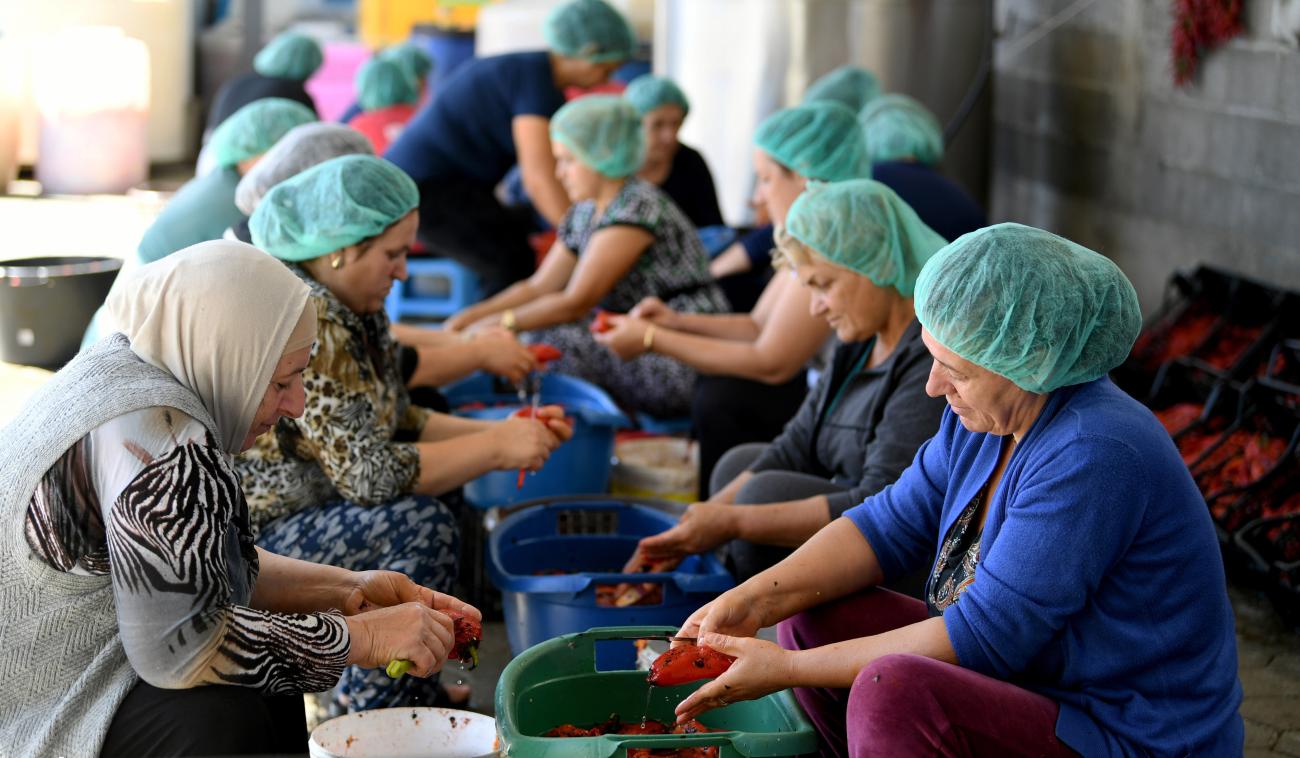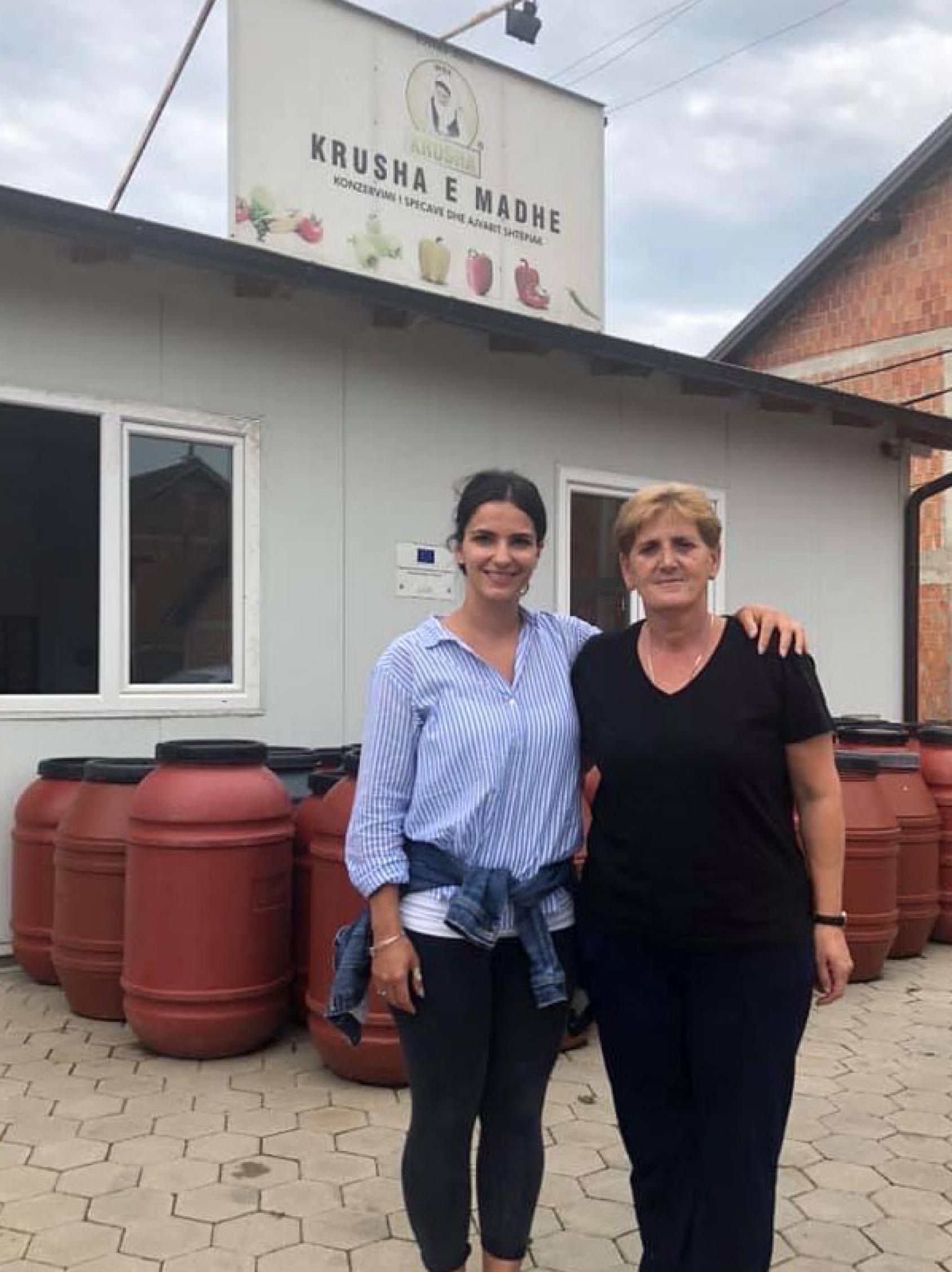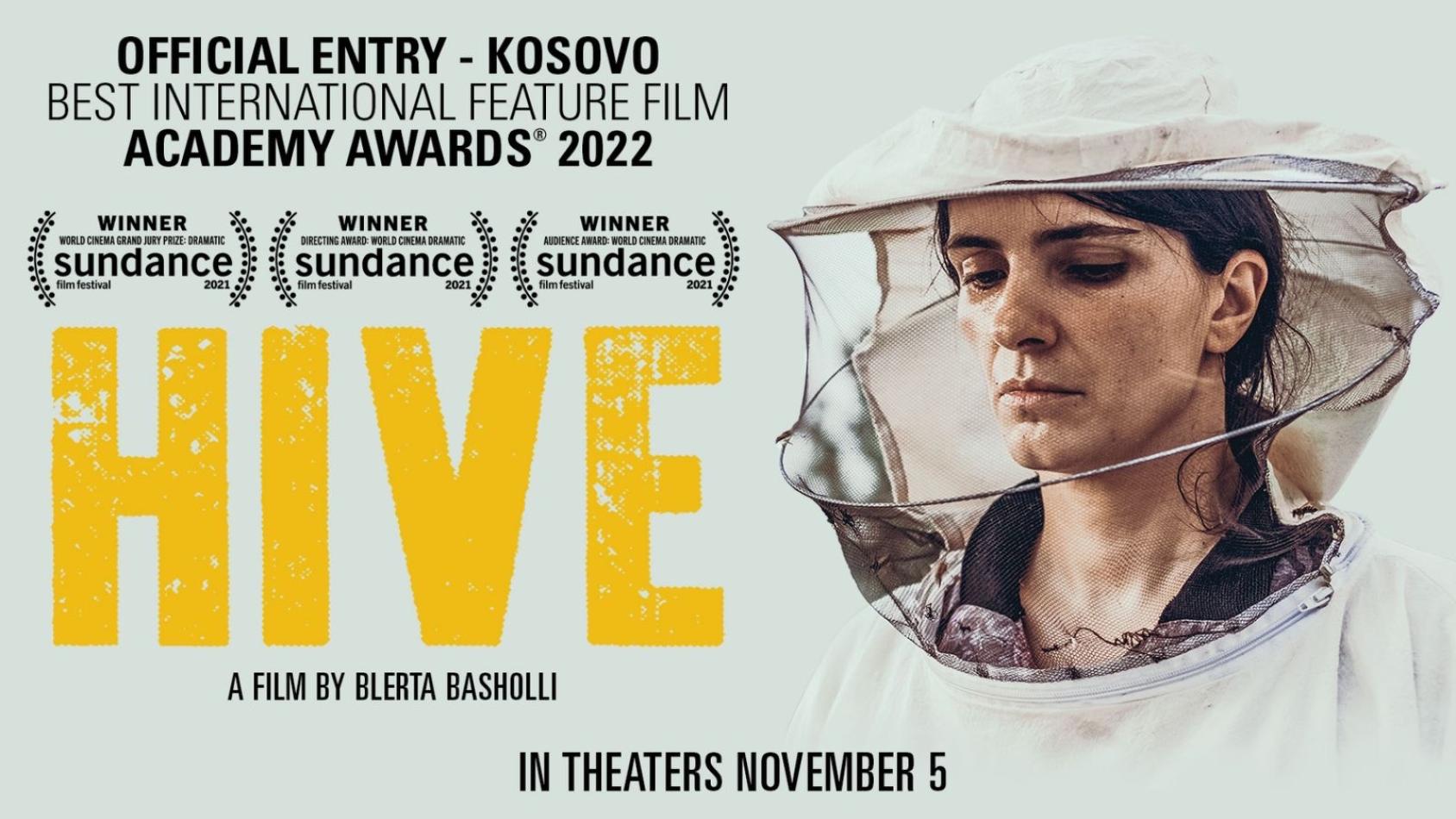Women’s story of Defiance and Perseverance: Rebuilding against all odds

The aftermath of the conflict in Kosovo1 in 1999 left more than 200 women widowed in the farming village of Krusha e madhe/ Velika Kruša, while over 500 children there lost at least one parent. Faced with many hurdles, particularly social expectations that widows should stay home, Fahrije Hoti and other women had to figure out a way to survive and provide for their families – a rare occurrence in this rural area’s predominantly patriarchal society.
Hoti comes from a family of farmers, so she turned to what she knows best. Through farming and entrepreneurship, she struggled to rebuild a life for her and her family amid social prejudices and notions about how widows should behave.
For years, Hoti worked alone to prepare ajvar, a traditional Balkan red pepper spread, in her backyard. Determined to break stereotypes and help other women rebuild their lives, she engaged other local women to found and run the “Women Krusha” Cooperative, a teeming enterprise supported by international organizations, to be able to mass produce ajvar and export it to Switzerland, Germany, and the United States.
The project started out with support from the Kosovo Women’s Initiative, a programme financed by the US Bureau of Population, Refugees, and Migration, and implemented by UNHCR. It was subsequently backed by UNDP, UNICEF, UN Women, with financing from INTERCOOP, USAID, and the EU. In this way, the international community has provided residents with the capacities needed to get their start-ups going.
Ola Syla, an activist working with women in the community, was one of the first to travel from Pristina to Krusha – some 70 kilometres (44 miles) from the capital – to offer her support. She vividly remembers that in the immediate aftermath of the conflict, countless needs were identified and instantly started to be addressed.
The needs – says Syla – included learning to read and write, to drive, to handle heavy machinery, as well as how to manage of small business.
The women caught on quickly, says Igo Rugova from the NGO Motrat Qiriazi, which backed the project from its early days. She now heads the Kosovo Women’s Network, an umbrella body for women’s NGOs. As a community champion, Fahrije Hoti exceeded every expectation, being the first to obtain a driving licence, driving both a car and a tractor. The social enterprise she started became a steadily sustainable enterprise, providing income for many families led by women, who are now the heads of their households.

Fahrie’s story of struggle and perseverance went on to feature prominently in the Kosovo media, inspiring young women, and activists to do more for their community and themselves.
The story inspired a young Kosovo woman and mother of three, Blerta Basholli, who was educated in the United States. She wrote and directed a drama, capturing the socially rebellious work of the Krusha widows. Entitled “Hive”, it is based on the real-life story of Fahrie. The full feature-length film quickly became a sensation, winning the Sundance Festival 2021 in three categories, with Audience Award-World Cinema – Dramatic; Directing Award-World Cinema – Dramatic; and Grand Jury Prize, as well as sweeping 17 other wins and additional nominations in different film festivals worldwide.
Dedicated to the women who need their voice to be heard, and their story to be told, Hive is entering the Oscars, competing with about 100 entries from all over the world in the category of Best International Feature Film, to continue to inspire women from all over the world through its hopeful and empowering story.

Written by Shpend Qamili, Associate Development Coordination Officer, Programme Communications and Advocacy and Outreach, UN in Kosovo Team, and Jonathan Fowler, Public Information Officer, Regional Office for Europe and Central Asia, UN Development Coordination Office. To learn more about the work of the Kosovo Team, visit: https://kosovoteam.un.org/.
*All references to Kosovo shall be understood to be in full compliance with UN Security Council Resolution 1244 (1999).





































